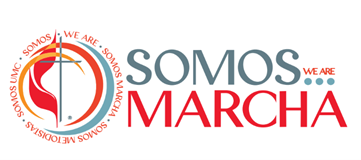Temporary Protected Status – A United Methodist Response
 What is Temporary Protected Status?
What is Temporary Protected Status?
Temporary Protected Status (TPS), established by Congress through the Immigration Act of 1990, allows individuals from certain countries to remain and work lawfully in the U.S. during a period in which it is deemed unsafe for nationals of that country to return home. TPS is granted as a result of natural disaster, armed conflict, epidemic or other extraordinary conditions. Approximately 320,000 individuals in the U.S. from ten countries have TPS. In most cases, these TPS holders have lived here more than 15 years, during which time they have had U.S. citizen children, bought homes, built careers, and made the United States their home.
TPS does not provide a pathway to citizenship. Instead, it makes available the right to be in the United States legally which protects recipients from deportation. Those with TPS can also apply for a work permit, which gives the recipient the ability to pursue lawful employment. Also, individuals from the designated countries cannot come to the U.S. and then apply for TPS. The foreign national had to be in the U.S. at the time of the original TPS designation.
Where does TPS stand now?
The Trump Administration has begun terminating this program. The majority of TPS recipients are from El Salvador (195,000), Honduras (57,000), and Haiti (50,000). El Salvador and Haiti have recently received 18-month terminations, meaning their status will be revoked in the summer and fall of 2019, respectively. Honduras has received a 6-month extension, so the next decision date for their TPS program is May 4, 2018. Nicaragua and Sudan have also been cancelled. The majority of individuals with TPS are not eligible to apply for another form of relief. Thus, once their TPS is cancelled they will be considered undocumented, no longer allowed to work lawfully, and be subject to deportation. The financial cost to ending TPS is significant. Not only would these individuals be no longer able to contribute to the U.S. economy, deporting TPS holders from El Salvador, Honduras, and Haiti alone would cost over $3 billion. See the attached chart for an overview of the ten countries that have TPS and where the program stands.
The Human Impact: Meet Marco
“The truth is, I feel very sad,” says Marco, a school custodian in Fairfax County, Virginia, upon learning that TPS was being terminated for El Salvador. Marco is a longtime Justice for Our Neighbors client and TPS holder. “I left El Salvador nearly 30 years ago because of the Civil War, and I have lived here all these years,” he explains. “I work day and night so my two children can have a good future. They were born here and this is their country. I wasn’t born here, but I feel like this is my country, too.”
Why Should This Matter for United Methodists?
The foreigner residing among you must be treated as your native-born. Love them as yourself, for you were foreigners in Egypt. I am the Lord your God.—Leviticus 19:34
We recognize, embrace, and affirm all persons, regardless of country of origin, as members of the family of God. — United Methodist Social Principles, ¶162.H
While it is true that this program is couched as temporary, we cannot ignore that over 15+ years TPS recipients have become our family members, neighbors, friends, teachers and community members. Over 270,000 U.S. citizen children have been born to those with TPS. The termination of TPS means pulling longstanding residents from their jobs, homes, and families and deporting them to countries that are still unsafe. For example, in El Salvador more than 20% of families have been the victims of gang-related violence. Haiti suffers from a cholera epidemic as well as the aftermath of Hurricane Matthew in 2016, which has affected more than 2 million residents. As people of faith, we must lift our voices in support of our sisters and brothers with TPS and demand a permanent legislative solution that provides an opportunity to become naturalized U.S citizens.
What Can We Do?
Contact Your Legislators. United Methodists can urge their members of Congress to enact legislation that would enable TPS recipients to remain in the United States lawfully and permanently, including the ability to attain U.S. citizenship. Tell Congress to protect TPS holders and #SaveTPS. Please dial (202) 224-3121 and call three times (once for your Representative and once for each of your Senators). You can also tweet: “@SENATOR/REPRESENTATIVE Declare your support for #TPS holders & legislation to protect them from deportation #SaveTPS #GreaterAs1”.
Spread the Word. Visit our partners at the Interfaith Immigration Coalition for sample social media messaging, as well as sample scripts for your legislative calls.
Volunteer. Serve at a United Methodist Justice for Our Neighbors clinic near you where you can assist TPS holders and other immigrants seeking immigration legal services.
Host a Prayer Vigil. By hosting a prayer vigil, people of faith are given an opportunity to reflect on the deep scriptural, spiritual roots of our work to support immigrants’ rights and highlight the real-life consequences of policy decisions, like ending TPS. Prayer Vigils are part of a larger strategy to express to our elected officials in Congress that protecting our immigrant family members and friends is a priority for people of faith.
